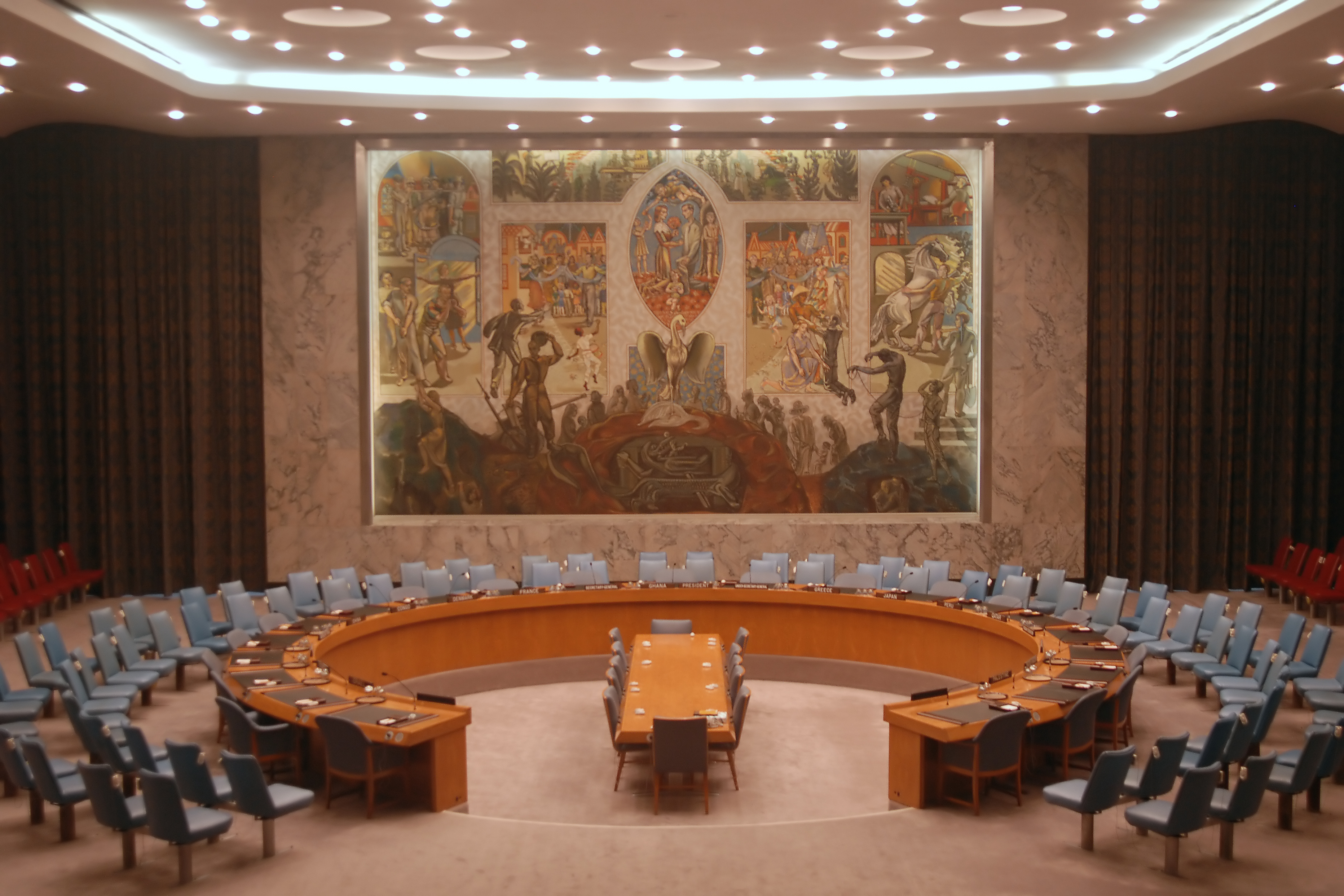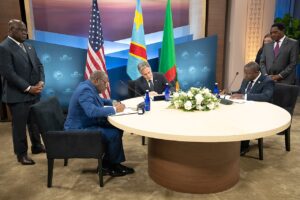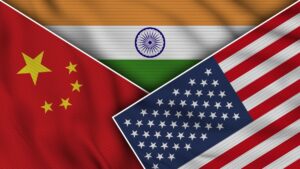The Red cell project
The Red Cell was a small unit created by the CIA after 9/11 to ensure the analytic failure of missing the attacks would never be repeated. It produced short briefs intended to spur out-of-the-box thinking on flawed assumptions and misperceptions about the world, encouraging alternative policy thinking. At another pivotal time of increasing uncertainty, this project is intended as an open-source version, using a similar format to question outmoded mental maps and “strategic empathy” to discern the motives and constraints of other global actors, enhancing the possibility of more effective strategies.
The Biden administration has ditched Trumpian unilateralism and embraced a contradictory multilateralism based on the foreign policy organizing principle of democracies versus autocracies — more a recycled logic of the Cold War than a guide for navigating U.S. interests in a complex global situation where regime types may not necessarily be the determining factor of many foreign policy choices.
This state of affairs is most dramatically evident in U.S.-led support for Ukraine against the Russian invasion, where much of the Global South remains neutral, as seen in the February 2023 G-20 meeting where finance chiefs failed to agree on a joint communiqué criticizing Russia. The recent Saudi-Iranian rapprochement brokered by China shows that today even a traditional U.S. partner like Saudi Arabia does not feel bound to work with Washington.
At a time when wealth, power, and technology are increasingly diffused from West to East and North to South, can such a limited democracy-versus-authoritarianism approach fashion a stable and prosperous world order as that which evolved after World War II?
The Biden administration’s like-minded “clubbist” redefinition of multilateralism — an alliance of democracies — has limited appeal beyond the West. The Global South does not want to be aligned with either the United States or the China-Russia camp but seeks good relations with all major powers to increase its leverage. This explains the Global South’s rejection of isolating Russia despite its condemnation of Russian President Vladimir Putin’s invasion, as well as Riyadh’s dealing with Beijing to renew ties with Tehran.
The very success of the post-World-War-II liberal rules-based order has created new dilemmas. The rise of China, India, and broadly, a new middle class in the Global South; the ubiquitous digital economy amid an unprecedented technology revolution; a substantial governance deficit; and a backlash against globalization all pose new challenges. These developments, embedded in a new dynamic of great-power competition, have contributed to the fraying global order.
The US National Security Strategy released last October reflects these contradictory impulses: there’s a “competition between the major powers to shape what comes next;” but addressing global problems such as climate change, pandemics, nuclear proliferation, terrorism, food insecurity, and global financial instability requires global cooperation and these “are not marginal issues that are secondary to geopolitics;” rather, they are of equal importance. As seen with China’s reluctance to cooperate on climate change and Russia’s suspension of the New START nuclear arms control treaty, a tension is apparent: global challenges end up being sacrificed on the altar of major-power competition.
Although Biden’s democracy/authoritarianism framework may have served a good purpose in rallying Western allies and partners on Ukraine, on issues like trade or tech rules and standards, allies do not always agree, and, in cases like Ukraine, this framework has proved divisive with much of the non-Western world.
Clubbism: Not the Answer
In a thoughtful paper, the Carnegie Endowment’s Stewart Patrick describes the upsides and downsides of various types of multilateralism — charter (UN), club, concert, and coalition. Patrick defines the Biden administration’s emphasis on democratic solidarity as “clubbism.” The problem with clubbism is that an alliance of democracies excludes the world’s top trading and capital exporter and second-largest military power with nuclear weapons (China), and Russia, a large nuclear weapons state and energy provider, as well as a huge number of countries in the Global South that prefer to be non-aligned.
Patrick explains that clubbism undermines “prospects for pragmatic cooperation with authoritarian powers including on crucial issues of peace and security, climate change, and the global economy. In practice, global problems do not coincide with ideological boundaries, and managing them requires cooperation with adversaries as well as like-minded fellow travelers.”
China and Russia, both of which have been excluded by the United States, have resorted to their own clubbism, such as the Shanghai Cooperation Organization and the BRICS, fragmenting the global order into competing blocs and undermining the inclusive multilateral architecture. In the current competitive climate, could the UN Security Council (UNSC) enable something akin to the Iran nuclear talks or six-party talks on North Korea? Western efforts to exclude Russia from the G-20, however justified by Russia’s behavior, could set a bad precedent along with being divisive with other members that consider Russia an important partner. The League of Nations failed partly because the major powers were absent (the United States) or had left (WWI’s Triple Alliance of Germany, Austria and Italy.)
Like many 70 year-olds, the institutions of the post-World War II system are in need of surgery and therapy. Given what Fareed Zakaria called “the Rise of the Rest,” it is imperative to give more weight to the Global South in order to make global institutions more representative if the multilateral system has any chance to survive the growing fragmentation. Reform that makes operational sense will be difficult because it would come at the expense of U.S. and EU weight. But a collective Western-led effort that engages the countries of the Global South on issues disproportionately affecting them — such as debt and climate change — will at least demonstrate that Western capitals are eager to reshape global institutions to factor in developing countries’ interests.
The gap between the Global South and the West is much deeper than understood, as a recent survey of major Western and Global South publics has shown. The countries of the Global South distrust Washington’s democracy/authoritarianism division of the world. To them, the world is already multipolar and the United States and Europe are just two of the poles. Western publics, instead, see the world as dividing into two — a Western bloc and a Russia-China one — and believe the moral duty of the Rest is to back the West.
A Few Easy Options
The United States has recently been more sensitive to Global South concerns. Treasury Secretary Janet Yellen, for example, has been pushing for World Bank reform, particularly to focus more on climate change and health needs — including pandemic preparedness — that many in the developing world have clamored for.
She said that the “current model of multilateral development banks lets countries borrow for investments at home, but that was ‘insufficient’ for challenges such as pandemics and climate change, which often hit the world’s poorest countries hardest. The climate focus needs to be balanced with the World Bank and other development banks’ focus on eradicating poverty, which has grown worse since the pandemic.”
Recently Trump-appointee David Malpass announced his intention to resign as World Bank head. World Bank presidents have traditionally been U.S. citizens, and the Biden administration has quickly nominated an American of Indian descent, Ajay Banga, the former Mastercard CEO. It would have been better to have waited for other executive directors to make nominations of citizens from the developing world and back one of their qualified nominees. In the future, the United States should back more developing world candidates, which would send a message that Washington does not consider the World Bank as its preserve and is open to other qualified candidates.
The G-20, accounting for about 75% of the global economy and 80% of the world’s population, is the closest thing to a forum for addressing pressing global problems. It was revived in the heat of the 2008 financial crisis and helped save the world from a potential Great Depression. Some Global South states will see an empowered G-20 as elitist, but its membership is much broader than that of the UNSC.
Although it has often been a talk shop, the G-20’s role in mitigating the recent less-developed countries’ debt crisis hints at its potential utility. If thoughtfully reformed and invested in by major powers and regional groupings like the East Asia Summit, Arab League, and Organization of American States, the G-20 could be a modern version of an economic Concert of Europe, enabling Western cooperation with China, if not Russia. The G-20 should not deal with security — where it lacks the legal powers of the UNSC and divisions are deepest — but rather concentrate on policy coordination on transnational economic and environmental issues where an equivalent body is lacking.
Far More Difficult Options
For Global South powers, permanent membership on the UN Security Council is the ultimate prize. The addition of Asian, African, and Latin American members would democratize the UNSC; the P-5 all reflect the legacy of World War II. Some developing-world leaders are calling for the removal of the veto held by the P-5. Multiple efforts have been made to expand the permanent membership; many of these have been led by the United States. President Joe Biden reaffirmed at the September 2022 UN General Assembly Washington’s support for increasing the number of UNSC permanent and nonpermanent representatives so long as there was no dilution of the P5’s veto powers: “This includes permanent seats for those nations we’ve long supported (Germany, Japan, India and Brazil) and permanent seats for countries in Africa [and] Latin America and the Caribbean.”
While Russia says it accepts the need to enlarge the membership to the developing world, it is against adding Germany and Japan, both of which it accuses of being stooges of Washington. China is opposed to Japan and India. In addition, the United States does not want the new permanent members to have a veto, which many in the developing world reject as reintroducing a second-class status to the new members. The problem is how to make the Security Council more reflective of the diffusion of wealth and power without making it more dysfunctional. U.S., Chinese, and Russian vetoes are already disabling it. Yet without an expanded UNSC, many believe it will lose legitimacy, particularly for most of the world’s population, who are not represented.
Multilateralism Has to Work
In designing multilateral institutions, a tension exists between the legitimacy of inclusion on the one hand and effectiveness on the other. Large organizations have difficulty being responsible and agile. Despite the complications of enlargement for UNSC or other bodies, though, it is important to foster a framework where the Global South is duly represented. History has shown that few international organizations die, but they often struggle to be relevant. The World Trade Organization is a current example.
A reformed, redesigned multilateral system should be a medium-term objective of the United States and its allies. Empowering a revitalized G-20 might help. Otherwise, the multilateral system could lose legitimacy and fragment the world into blocs with separate trade, financial, and security systems.
At a time of increasing global challenges affecting all, an inclusive multilateralism – even if it is a mix of concert and balance among major powers – is essential. Fostering such a system will require developing a framework for competitive coexistence between the United States and China. A democracies-only club spurs reactive blocs pushing in opposite directions. Multipolarity without multilateralism is a recipe for a Hobbesian world, which the founders of the post-World War II liberal order in 1945 sought to avoid.




